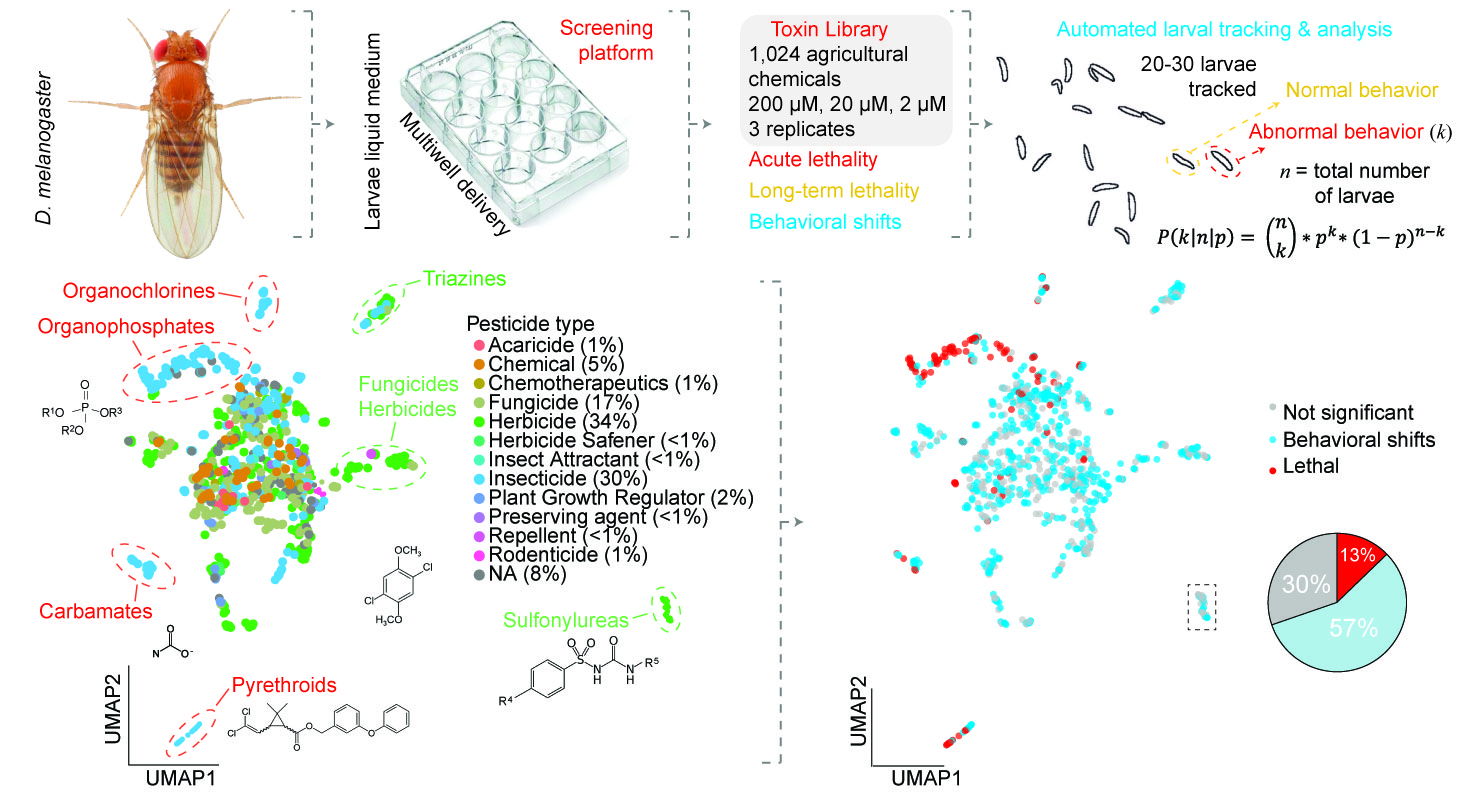Deep phenotyping in ecotoxicology: from the insect apocalypse to the stress response

SémIdeev
19/09/2025
12:00:00
Lautaro Gandara, European Molecular Biology Laboratory, Heidelberg, Germany
IDEEV - Salle Rachel Carlson
Worldwide, insect populations are declining at an alarming rate, and exposure to agrochemicals has been identified as a key factor affecting insect biodiversity and ecosystem health. Despite the prevalence of these chemicals, few studies have systematically evaluated their effects on insects at sublethal, environmentally relevant concentrations. In a previous work (Gandara et al. Science, 2024), we developed a high-throughput screening platform to evaluate the impact of 1024 different agrochemicals, including insecticides, herbicides, fungicides, and plant growth regulators, on the behavior of Drosophila melanogaster. Our results showed that 57% of the tested agrochemicals—many of them non-insecticide agrochemicals—significantly altered larval behavior at sublethal concentrations. Consistent with these results, we observed that exposure to these chemicals at doses orders of magnitude below lethality induced widespread phosphorylation changes across the larval proteome and changes in development and reproduction. Additionally, similar behavioral changes were detected across multiple insect species, including mosquitoes and butterflies. Thus, these results provide experimental evidence strongly suggesting that sublethal doses of agrochemicals contribute to the global decline in insect populations. Building on this approach, we now plan to use this chemical library to measure the functional phenotypic integration among the various defense systems necessary for successful xenobiotic detoxification. Understanding the underlying mechanisms of the systemic response to chemical stressors will provide essential information for predicting how molecules in the environment affect animal systems.
Dr. Lautaro Gandara is currently a postdoctoral researcher at EMBL Heidelberg in the lab of Dr. Justin Crocker. His research focuses on deep phenotyping of Drosophila, combining molecular, behavioral, and morphological analyses to uncover how genetic and environmental factors shape organismal traits. His recent work has had major impact in the field, including a Science publication on the sublethal effects of agrochemicals on insects. Dr. Gandara holds a PhD in Biological Sciences from the University of Buenos Aires and was an EIPOD fellow funded by the Marie Skłodowska-Curie Actions.
